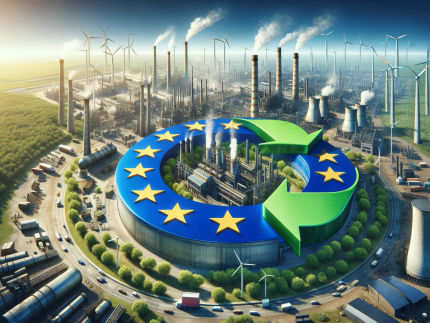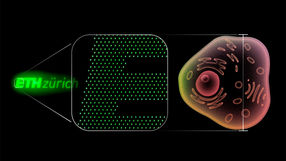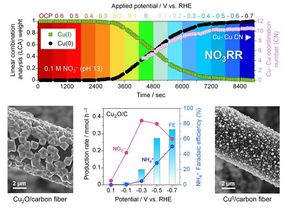Electrolysis meets "Direct Air Capture"
The "Air2Chem" project is developing an economical process for converting CO2 from the air into chemical base materials such as ethylene or syngas
Advertisement
In order to achieve its goal of decarbonizing raw material flows, the chemical industries must cover their carbon requirements from sustainable sources. The direct capture of CO2 from the air has hardly played a role so far – mainly due to the high investment and operating costs. The partners in the "Air2Chem" project want to change this: They are developing an integrated process that combines the "Direct Air Capture" process with electrolytic conversion of the green carbonate-containing absorber solution into platform raw materials for the chemical industries.
Alongside biomass, carbon dioxide is the most relevant source of sustainable carbon in the chemical industries. While large parts of the demand are already covered by non-avoidable and not sustainable CO2 from cement plants, incineration plants or the paper industry, a supply gap of at least 190 million tons of carbon per year can be identified in the medium term. "Direct Air Capture (DAC)" is one way of making additional sustainable carbon dioxide available for chemical industrial processes, regardless of location. The disadvantage is that technologies for the direct capture of CO2 from the air are currently associated with high investment and operating costs and are therefore not economical.
The aim of the project "Air2Chem: Paired electrosynthesis of basic and valuable chemicals via natural wind driven direct CO2 capture from air using membrane gas absorption and carbonate electrolysis" is to change this. The Fraunhofer Institute for Environmental, Safety and Energy Technology UMSICHT, CO2CirculAir B.V., RWTH Aachen University (Aachener Verfahrenstechnik, Chemische Verfahrenstechnik), GKD – Gebr. Kufferath AG and FXC Engineering GmbH are jointly developing an integrated "Direct Air Carbon Capture and Utilization (DACCU)" process. It combines natural wind driven DAC with electrolytic conversion of the carbonate-containing absorber solution into platform raw materials for the chemical industries, such as carbon monoxide or ethylene.
Thanks to this combination, both the high energy costs for desorption are saved and process chains are simplified in terms of process intensification. At the same time, a value-adding anode process is integrated into the electrolysis process, which enables the production of high-priced chemicals (e.g. formaldehyde, lactate, formate or flycolate) from sustainably available platform chemicals (e.g. methanol via power-to-X processes or glycerine from biodiesel production) with a further reduction in energy requirements in the electrolysis process. At the end of "Air2Chem", a platform technology for the energy-efficient and sustainable production of chemical raw materials and materials is to be developed as an add-on to existing process engineering infrastructures in the chemical industries and piloted on a pilot plant scale.
Other news from the department science
Most read news
More news from our other portals
See the theme worlds for related content
Topic world Synthesis
Chemical synthesis is at the heart of modern chemistry and enables the targeted production of molecules with specific properties. By combining starting materials in defined reaction conditions, chemists can create a wide range of compounds, from simple molecules to complex active ingredients.

Topic world Synthesis
Chemical synthesis is at the heart of modern chemistry and enables the targeted production of molecules with specific properties. By combining starting materials in defined reaction conditions, chemists can create a wide range of compounds, from simple molecules to complex active ingredients.




























































